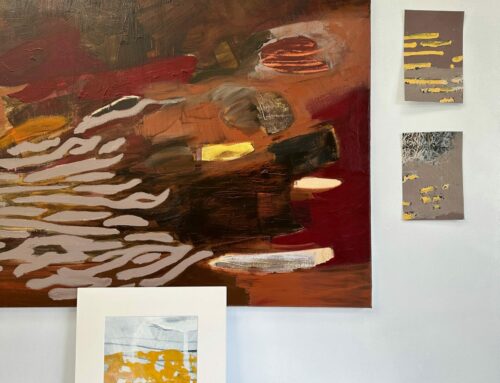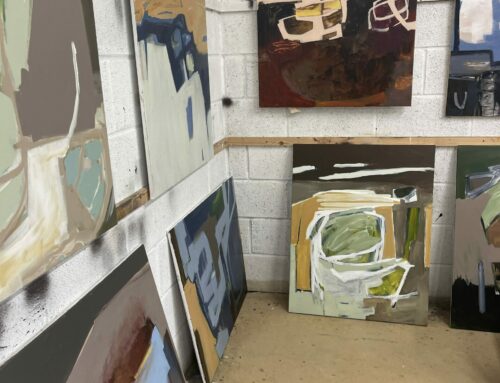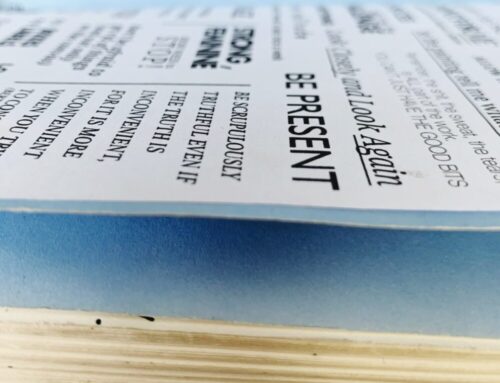WHO (DON’T) YOU THINK YOU ARE?
One of my greatest achievements as an artist has been learning to stand up and call myself just that; an artist. I’d call myself a photographer though I hadn’t been working as one for a year, as it felt more credible. I’d call my studio a ‘workroom’ so as not to sound pretentious and coyly show only snippets of work in progress on social media. And yet now I can say the words almost consistently without faltering. I am an Artist. How did this change come about?
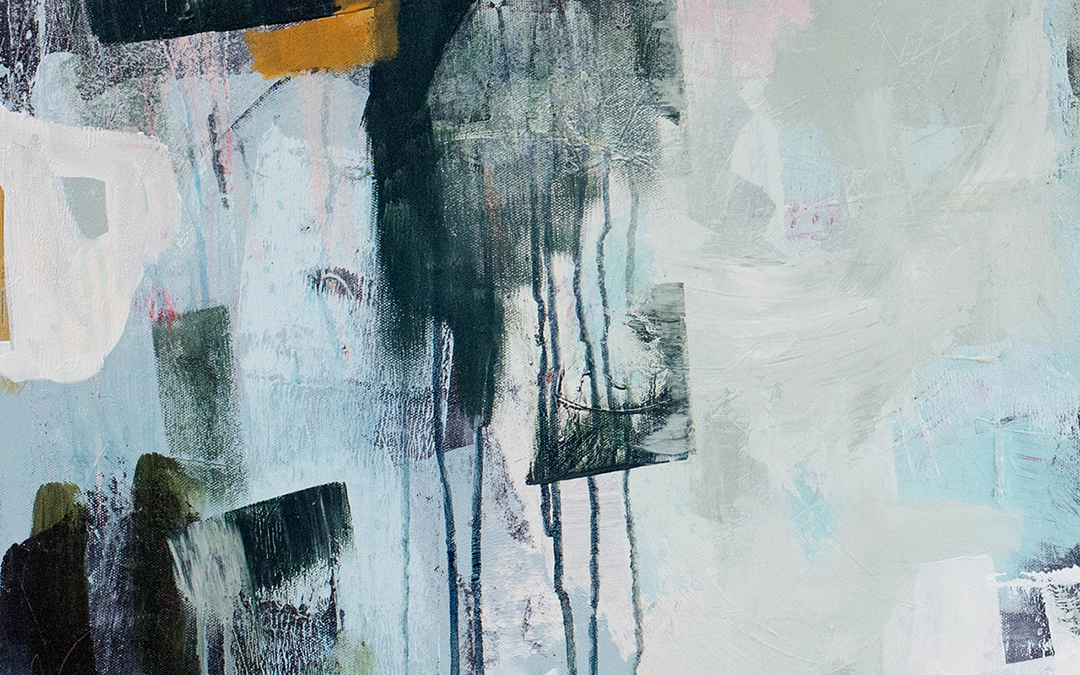
Last week Michelle Obama told a group of schoolgirls in London that despite her fame and her accomplishment – or because of it- she still sometimes feels like a fraud; that feeling of ‘I don’t know if the world should take me seriously’ persists, even for one of the most influential and eloquent women in the world. I know that feeling (though sadly not the influential and eloquent bit). I remember the first time I introduced myself as an Artist (capital A); I thought the person who’d asked me that most dreaded of questions for a wannabe artist what did I do? would burst out laughing as the validation gremlins swept into view and revealed the truth- that I was only pretending! I remember feeling this on my first day at university in the ’80s; wishing the floor of the lecture theatre would swallow me up and not divulge my inadequacies to my fellow students who were all quite clearly brighter and more confident than me. And in one of my first job I was told directly and indirectly several times that shouldn’t be there (too young, too female.) No wonder the imposter gremlins settled in for good.
Most recently, I visited a respected provincial art gallery and found myself intimidated by the quality of the work (by ‘real’ artists) and the gallerist herself- young, efficient, not especially interested in me. I won’t say where the gallery was, not to protect anyone’s innocence but because the issue was wholly mine, and not hers. It seems that even three years into this arty life the young woman who doesn’t belong is still within me. Is there any hope?!
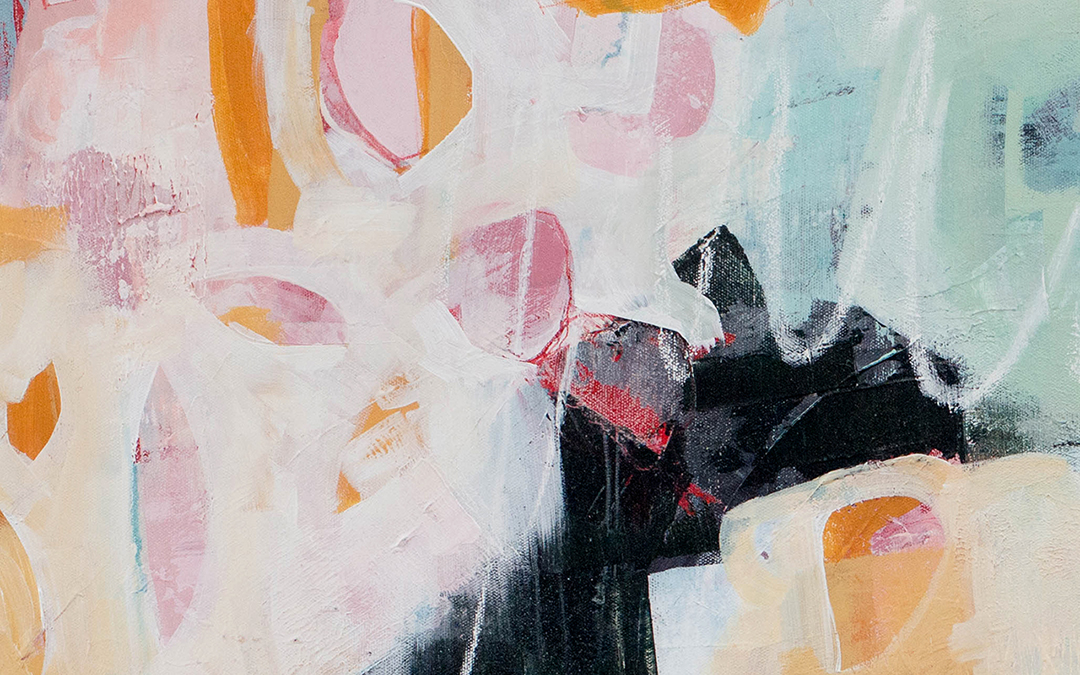
The term ‘imposter syndrome’ was defined by social psychologists in the 1970s, describing a fear of being ‘found out’, of being exposed as a fraud; it manifests as a constant state of anxiety that you’ll be unmasked and humiliated in your chosen sphere and that any success you have achieved isn’t really deserved and has happened purely as a result of an alignment of the stars and no more.
In the creative realm, in particular, we are prone to selective and filtered thinking. We are adept at syphoning out any evidence of achievement, ignoring any accolades we might receive and downplaying any positive feedback. There’s something in our culture- in Britain at least- that encourages us to play small; to act downbeat about our strengths and achievements. We don’t want to be seen as getting too big for our boots, or allow our own poppy to grow taller than those around it. And, I hate to say, particularly for women. Playing small, I know from my own experience, can defend us against expectation. If I don’t stick my head above the parapet, I can’t get shot, can I?
Clearly, it’s not just me and Mrs Obama – famous sufferers include Lady Gaga, Tom Hanks, Neil Armstrong and even Nobel Laureate Maya Angelou has said, “I have written 11 books, but each time I think, ‘uh oh, they’re going to find out now. I’ve run a game on everybody, and they’re going to find me out.’”
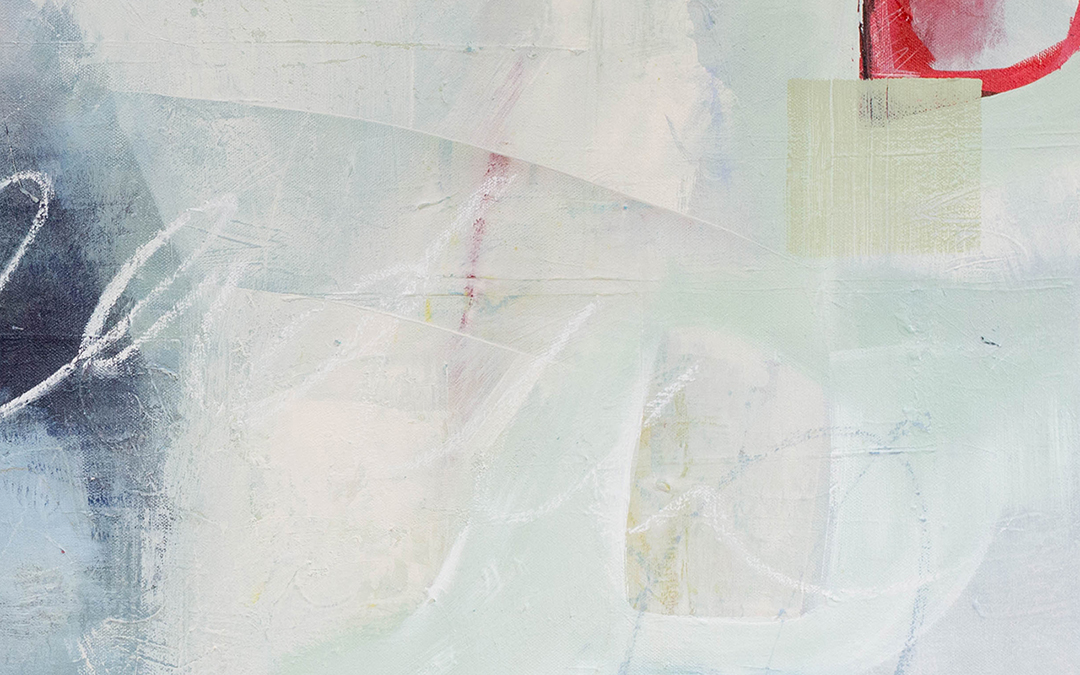
As artists, it feels very real indeed. Not least because our work is often visual, and often very public. Social media offers a vast playground for comparison and inevitably breeds inadequacy. Sometimes I look back at my work and for that moment I truly believe that I will never be able to paint like that again; that it’s all been a fluke, that I will be unmasked and will be exiled from the art community of which I have only recently become part. For many artists, this low-level anxiety runs like a thread through our careers, with a fear that at any time the thread could be pulled and everything we’ve built will unravel.
The syndrome is evidently closely tied with perfectionism, another trait that we artists excel in- the fear of failure, of criticism, of making mistakes and disappointing others. When things do go wrong – as they always do- that’s life-we tend to experience shame and anxiety more than is proportionately reasonable.
When new challenges arise we tend to react either by working really, really hard, leading to stress and burn out, or by self-limiting in some other way, such as procrastinating and leaving things perilously close to a deadline, or other avoidance and self-sabotaging behaviours. We are naturally prone to a pessimistic worldview that anything that can go wrong will go wrong, and if we do succeed, we confirm our pessimistic biases by telling ourselves that we only managed it because a) we were lucky b) we worked harder than ever and totally over prepared in order to achieve it.
For me, not having a ‘proper’ art qualification, undervaluing the ‘self-taught ‘ label, and earnestly attending courses and workshops, was one reaction. Buying new stuff to overcompensate for my inadequacies-apps, art supplies, books- was another. Playing the comparison game on social media is yet another way that we add salt to the cut. I have been guilty, I realise now, of consistently looking outward rather than inwards for the confirmation I need that I am good enough to call myself an artist.
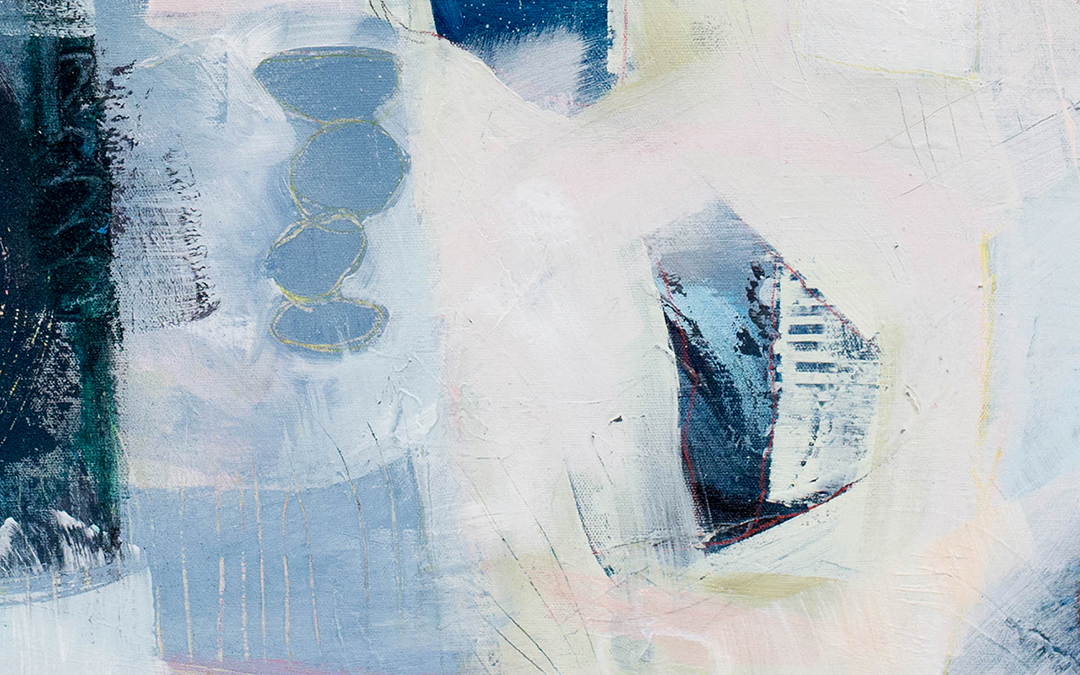
But there is a way out. Like most things in the world of personal growth it’s about a) catching yourself behaving in this way and b) building small habits to overcome the negative effects of thinking this way. The good news is, this learned behaviour can be undone.
Here’s my advice ;
1. Hold firm. Be clear in your own mind about your achievements and more importantly, your ‘why’; the thing that drives you in your field. For me, making art is a very personal and compulsive urge, a non-negotiable. It only seems natural, now, to call myself an artist. Even if I didn’t paint one painting in the last year I would still be an artist. It’s a state of mind.
2. Seek support for your artist life and build an encouraging, motivating community. If someone is making you feel defensive, unworthy and uncomfortable, they don’t need to be in your space. Learn how to give to and receive feedback from your community. Feedback given in the right way can be a game changer.
3. Notice the times when you tell yourself ‘I Should’. Do the things you are driven to do, for your own good reasons. Swim against the tide if you have too. ‘Shoulds’ and ‘musts’ often take you further from your true purpose and authenticity and the further you are from that, the more likely you are to feel like an imposter.
4. Separate feelings from facts. Know your strengths and acknowledge your successes. When the inner voice is telling you porkies*, constantly remind yourself what value your own unique strengths contribute to the world, as they undoubtedly do.
5. Reframe failure as an opportunity to learn and grow. Just because it didn’t work out this time doesn’t mean you don’t belong or are not worthy of your position or title. It merely means you have a chance to learn some resilience and a way to do it differently.
6. Stop waiting to be perfect before you start. We are all learning on the job. Whatever your job is. That colleague of yours who seems to know it all already? She’s lying.
7. Use social media as a way to show the journey and the growth, not just the good stuff. Be open and vulnerable about your fears and doubts. Lead by this example.
8. Compete only with yourself. Work only for yourself, and not the approval of others. Don’t forget we compare our ‘insides’ to others ‘outsides’. They show only their best work and often don’t share the blood sweat and tears they experience along the way. We, of course, experience every little bump in the road and tell ourselves that we are alone in this.
9. Broaden your horizons; look wider than your own narrow field. You may feel way down the pecking order of experts in your area but to those without your skills and talents, you are already a genius. And it’s true, you are. Your unique combination of experience and personality, of outlook and vision, make you the no 1 of what it is that YOU do. Savour that.
10. Practice! There is something to be said for looking at yourself in the mirror and repeating the mantra. I am an artist. I AM an artist. I am an ARTIST! Practice also some self-compassion- when the story inside your head says, ‘THEY got where they are as a result of innate super-talent, the ability to work much longer hours than me and because they have a fine art degree? And yet my achievements such as they are are down to luck, at best. And sheer bloody, unsustainable hard work’, ask yourself; do you know this to be true? Can you reframe that story to suggest that in fact, not having formal qualifications might actually be an advantage ; that actually having limited time to work in your chosen field might mean you are more focused and productive; and that those with natural born talent aren’t guaranteed success; it’s the ones with the motivation to work their 10,000 hours who will really excel.
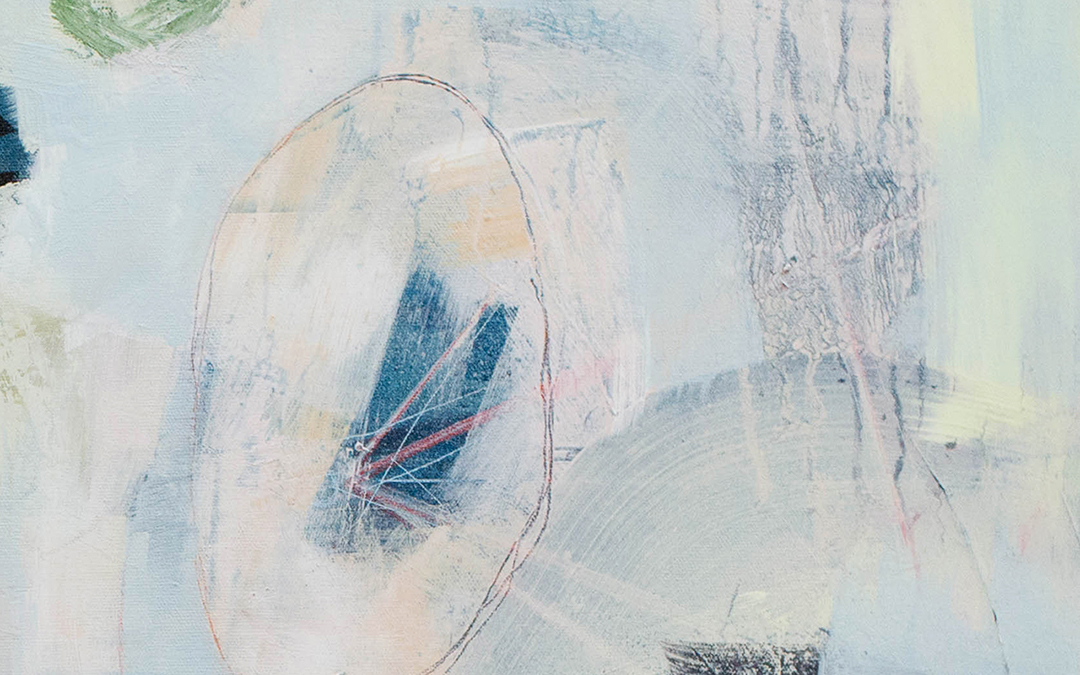
We often joke about it the imposter lodged like a troublesome gremlin on our shoulder, but the truth is that it can keep us stuck in a downward spiral of self-worth, limiting our opportunities and making us feel miserable. Instead of avoiding judgement and underestimating the value of our successes we can learn to actively look for opportunities and openings, and build resilience in the face of failure. Creating good habits and a positive mindset will lead to more robust self-belief, and although the Imposter may still appear from time to time, you’ll be much more likely to brush it aside. As Amy Cuddy, author of ‘Presence’ writes;
New situations may stoke old fears; future sensations of inadequacy might reawaken long-forgotten insecurities. But the more we are aware of our anxieties, the more we communicate about them, and the smarter we are about how they operate, the easier they’ll be to shrug off the next time they pop up. It’s a game of whack-a-mole we can win.”
I’d love to know your experiences of Imposter Syndrome. Is that pesky voice in your head here to stay, or have you banished it for good?

